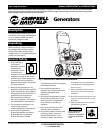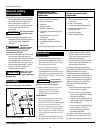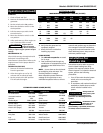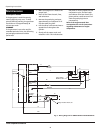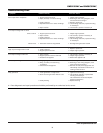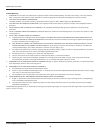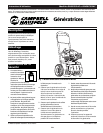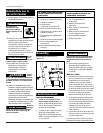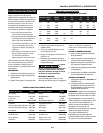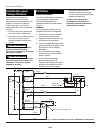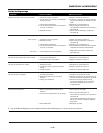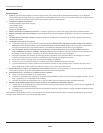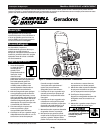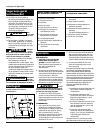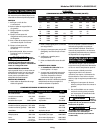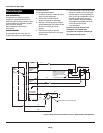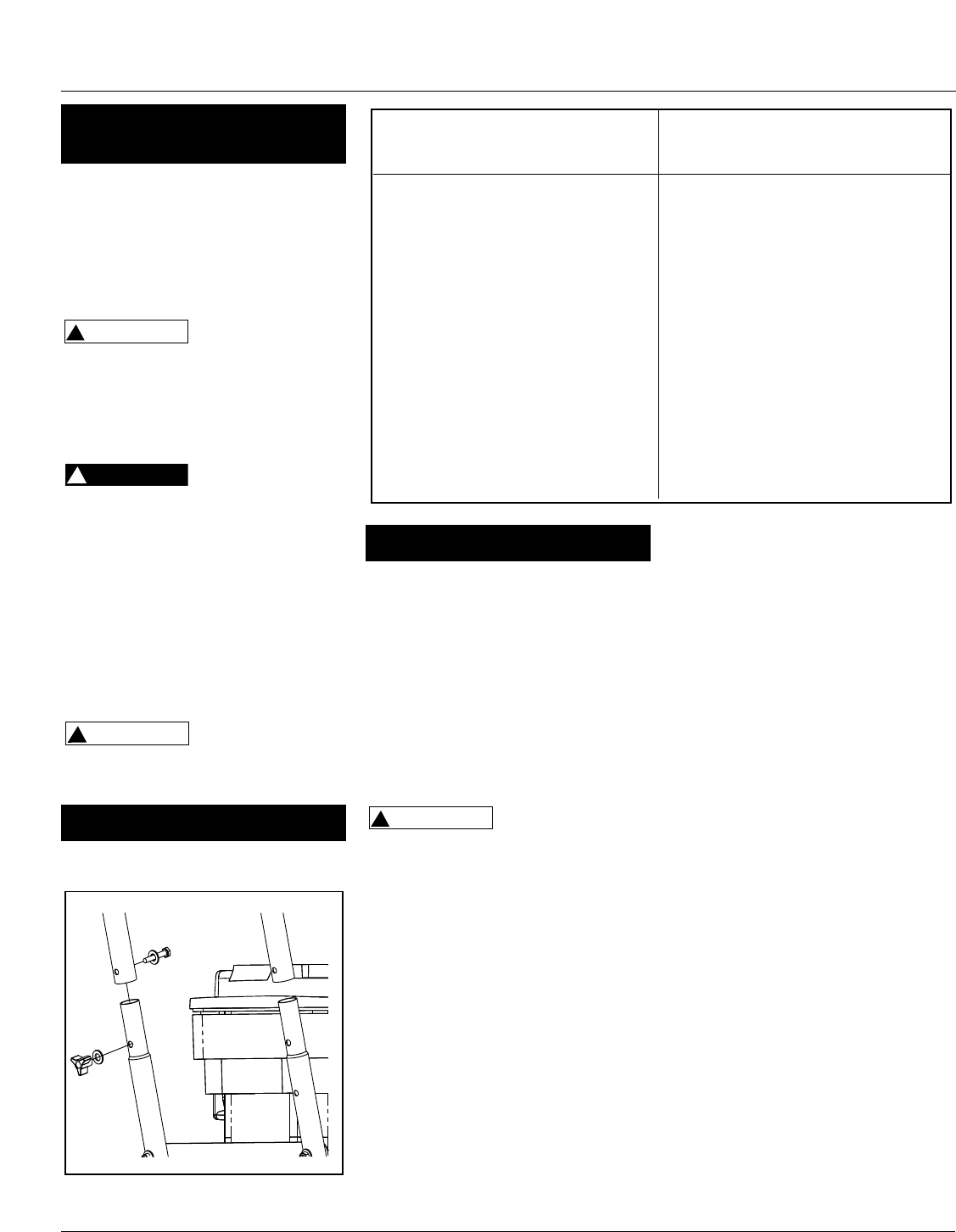
PRE-OPERATION
1. Check engine oil level every time
you start your generator. Refer to
the Engine Manual for SAE, API and
fill quantity specifications.
2. Use of a Ground Fault Circuit
Interrupter (GFCI) is strongly
recommended. Ground Fault Circuit
Interrupters can significantly reduce
the possibility of injury if an electrical
short occurs.
A Ground Fault
Circuit Interrupter
may not be effective if used on a
generator that is not grounded!
3. When installing a GFCI, be sure to
follow all national and local
regulations, or call a licensed or
certified electrical technician.
GROUNDING
1. Use the ground terminal and wing
nut on the generator frame to
connect the unit to a suitable ground
source. Securely fasten the end
terminal of the ground wire to the
ground terminal on the generator
frame. Tighten the washer and wing
nut on top of the ground wire end
terminal.
2. The ground wire should be made of
#8 gauge wire. Do not use wire with
!
WARNING
a higher gauge number. Higher
gauge numbers indicate thinner
wire, which may not provide an
adequate ground path.
3. The other end of the ground wire
must be securely fastened to an
approved ground source.
The following are ground sources
approved by the National Electric Code.
Other ground sources may be
acceptable. Refer to the National
Electric Code and local regulations for
further ground source information. If
not sure of regulations or procedures,
obtain assistance from a qualified
(licensed or certified) electrical
technician.
a. An underground water pipe at
least ten feet in length.
b. A non-corrosive underground
pipe at least eight feet in length
and 3/4 inch diameter.
c. A steel or iron underground rod
at least eight feet in length and
5/8 inch diameter.
d. A non-ferrous rod at least eight
feet in length, 1/2 inch in
diameter, and approved for
grounding purposes.
Any rod or pipe used for grounding
must be driven to eight feet deep or
buried in the deepest possible trench.
2
Operating Instructions
12. Be sure that all tools and appliances
are in good repair and are properly
grounded. Use devices that have
three prong power cords. If an
extension cord is used, be sure that
it has three prongs for proper
grounding.
Do not operate this
generator on wet
surfaces or in the rain.
13. Never operate the generator with
damaged, broken or missing parts, or
with any guarding components
removed.
Shut off the
generator engine
and disconnect the spark plug wire
before performing any service or
maintenance to the unit.
14. Use only unleaded fuel. Do not refill
the fuel tank while the engine is
running. Use precautions to prevent
fuel spillage during refills. Be sure
the fuel tank cap is securely in place
before starting the engine. Allow
engine to cool for at least two
minutes before refueling.
Never mix oil with
gasoline for this
engine. Oil is used for engine lubrication
purposes only.
NO TOOLS REQUIRED FOR ASSEMBLY
!
CAUTION
!
DANGER
!
WARNING
NEVER OPERATE YOUR
GENERATOR UNDER THESE
CONDITIONS:
1. Rain or inclement weather
2. Excessive vibration
3. Sparking
4. Engine misfire
5. Electric output loss
6. Changing or fluctuating engine
speed
7. Overheating in connected
equipment
8. Damaged receptacles
9. Damaged, broken or missing
parts
10. Guarding components removed
ALWAYS OPERATE YOUR
GENERATOR UNDER THESE
CONDITIONS:
1. Read and understand these
instructions
2. Clear of all persons
3. Properly grounded (generator)
4. Properly grounded (tools,
appliances, etc.)
5. Flat level surfaces
6. Well ventilated areas
www.campbellhausfeld.com
Fig. 2 - Handle Assembly
General Safety
(Continued)
Assembly
Operation



